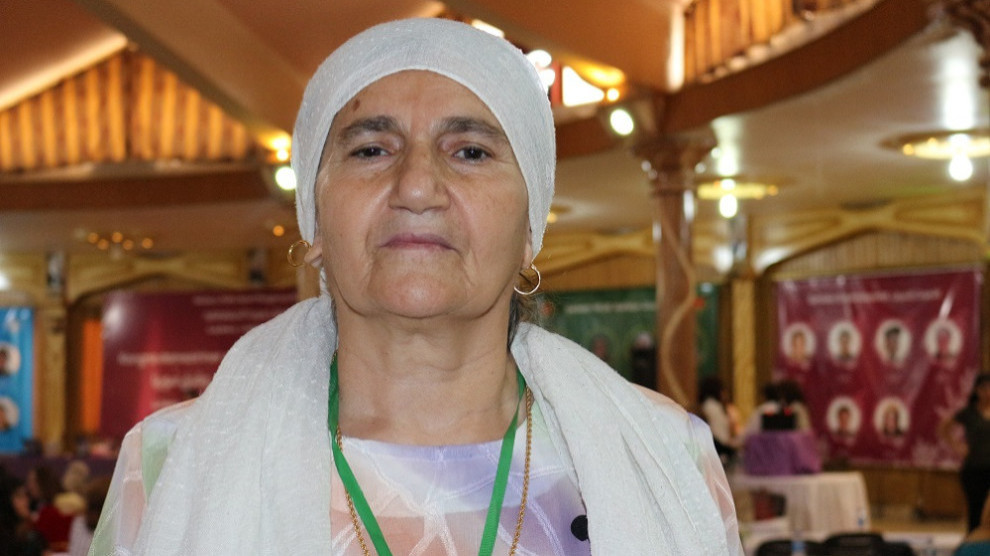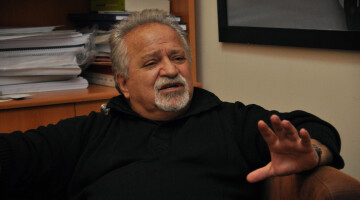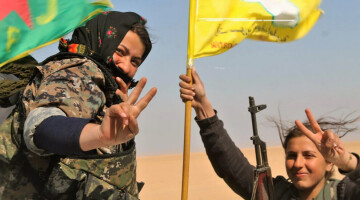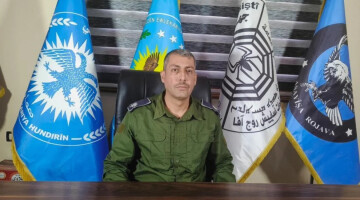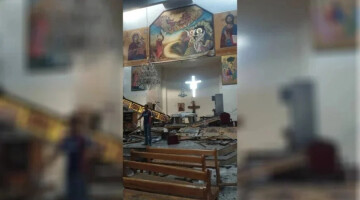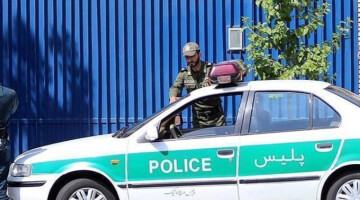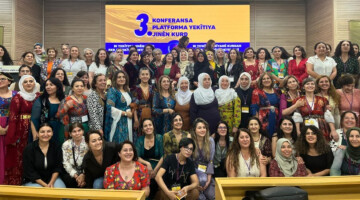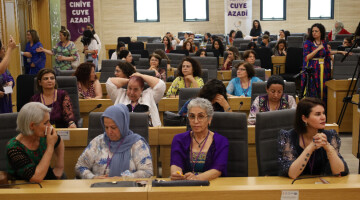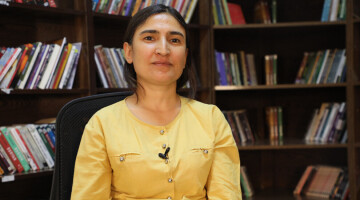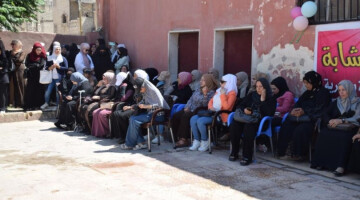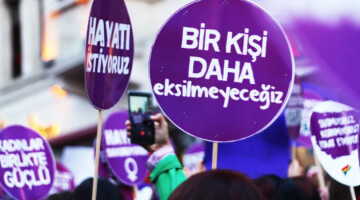The spokeswoman for the women's movement in Sheikh Maqsoud, Fatma Hesan, talked to ANF about the establishment of the Women's Assembly of Northern and Eastern Syria. "Let's get our strength out of ourselves, out of our resistance and become stronger as women," she tells.
The neighborhoods of Ashrafiyah and Sheikh Maqsoud in Aleppo are examples of self-government. The population has not left their neighborhoods, but successfully resisted and built a self-government. Sheikh Maqsoud has been targeted by jihadists since the beginning of 2013. Since then, the neighborhood has witnessed an enduring resistance. One of those tireless resistance fighters is Fatma Hesen, spokeswoman for the women's movement Kongreya Star in Sheikh Maqsoud. ANF spoke with the activist at the founding congress of the Women's Assembly of Northern and Eastern Syria.
What significance does the Women's Assembly of North and East Syria have?
Today, we perform a wide range of work from Afrin to Serêkaniyê, from Manbij and Tabqa to Raqqa and Deir ez-Zor. As a result of this work, we have organized the founding congress of the Women's Assembly of Northern and Eastern Syria. We hope that this Assembly will contribute to the spread of the women's movement to Syria, the Middle East and the world. The words of our Chairman Apo [Abdullah Öcalan], his hope and his project are being implemented. I say, let us resist nonstop and expect nothing from the states or the patriarchal mentality. Let us draw our strength out of ourselves, out of our resistance and become stronger as women. We as women, as a whole, can give the right answer at this stage. The Assembly will make a major contribution to women's freedom. As Leader Apo said there is nothing that is impossible. We are a people that has created its existence out of nothing.
Can you talk about the resistance of Sheikh Maqsoud and the role of women there?
The resistance of Sheikh Maqsoud lasted for about seven years. With the power that we drew from Leader Apo's mind, women, men, children, and elders all resisted together and did not let the jihadists advance to Sheikh Maqsoud. The chairman would often come to Aleppo and teach there. As a woman, I drew great strength from meetings with him, and with that power we have resisted violence, sleeplessness, and thirst. We said we can stay hungry, but not without Sheikh Maqsoud, and promised to free it.
Sheikh Maqsoud is an area of strategic importance. If we had given up Sheikh Maqsoud, then all Aleppo would have fallen. Our people have done great work in Sheikh Maqsoud. For example, the newspaper Ronahî was printed here for the first time, and it was the same with our magazine. In Sheikh Maqsoud also the clothes for our music groups were produced. So many young people joined the resistance here and fell as martyrs. We said we could be killed but would not choose a way other than resisting. We cooked for the militants in the war, cared for the wounded, provided the necessary goods and tried to provide everything necessary.
What was the hardest part of this revolutionary process?
The hardest thing for me, which I will never forget, is that our doctors left us behind and fled. When our friends were injured, we could not do anything for them. We were surrounded, there were no doctors, no medicine, we had only a few nurses, and that was not enough in any way. Those wounded had internal bleeding, but we could not do anything. They died before our eyes, but our hands were tied. I can never forget what we have experienced and I will remember it the most, despite all the problems we have been through. We only thought about how we could prevent the enemy from reaching Sheikh Maqsoud.
After all, we resisted for months and years, and we won. Our success set an example for everyone. Even Leader Apo spoke of this success, and called the people revolutionaries. In Sheikh Maqsoud, the residents and our military forces merged into unity, so we were successful. While we were fighting on one hand, we were doing educational work for the people on the other. We women were clearing the basements and looking after the children there. This hard time made us a family, everyone had their part in this, and so this family has indeed succeeded.

